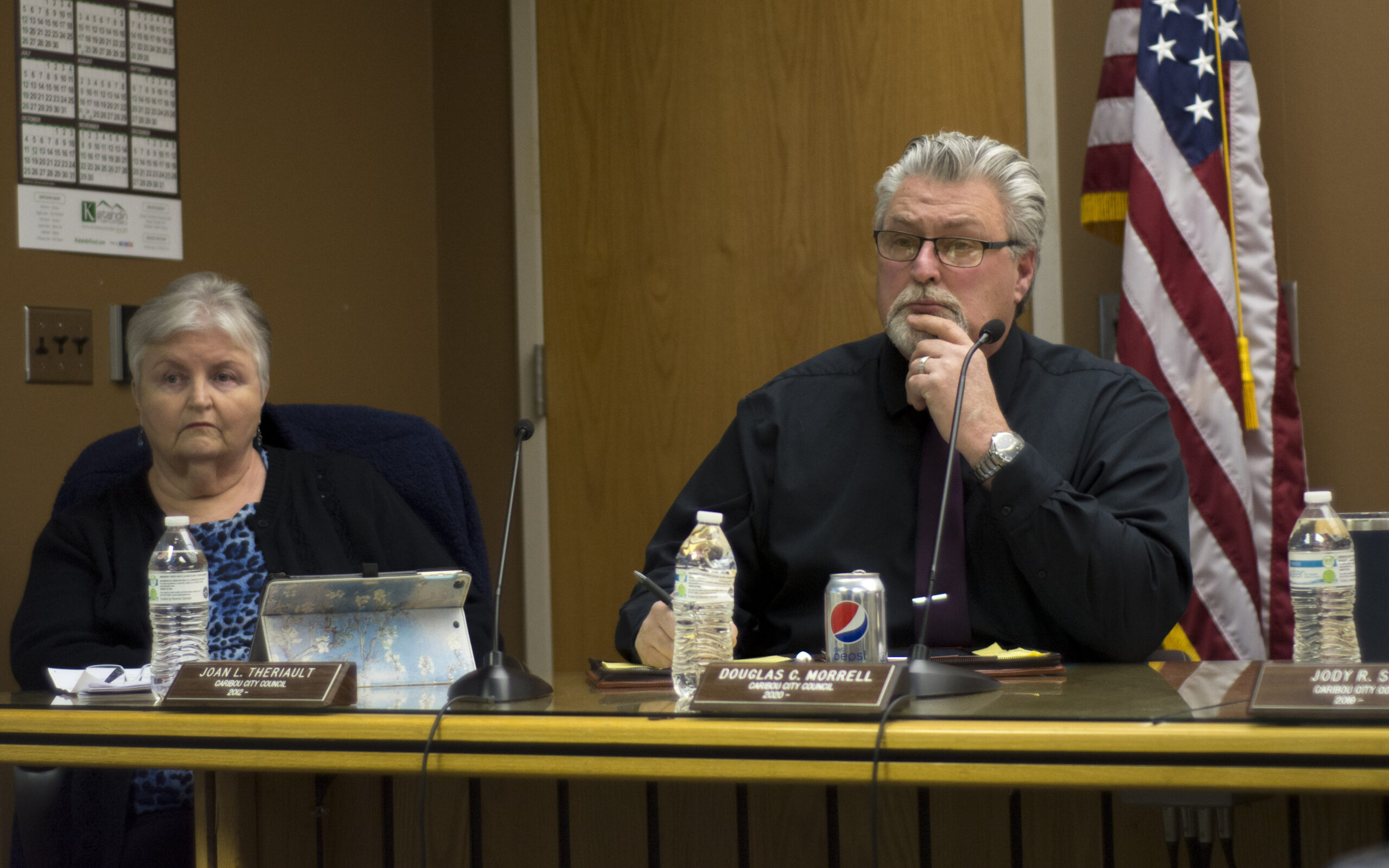
CARIBOU, Maine — Six Caribou city councilors voted in favor of establishing a credit reserve account — a “rainy day fund” — with $896,029 to be used in emergency financial situations.
Councilor Hugh Kirkpatrick, who made the motion, cited four sources for the fund: $324,082 from Aroostook Waste Solutions in 2020; $213,163 left over from Aroostook Waste Solutions’ 2019 contribution; $156,521 in unexpected revenue from 2019; and $202,263 from unspent expenses in 2019.
City Manager Dennis Marker said that while state guidelines do not limit how much money can be placed into a credit reserve account, they do outline two methods for placing money into an account — direct appropriation through the budget process and placing surplus funds into the account.
With the next items on the agenda being the discussion of the AWS funds and additional revenues and unspent expenses from 2019, Deputy Mayor Thomas Ayer, who acted as mayor during the meeting in Mayor Mark Goughan’s absence, asked if council could discuss these items first.
Marker suggested holding off on the discussion of additional revenues, as the charter states that any additional revenues need to be specifically spent toward offsetting taxes for the future year. In this case, $156,521 of the $896,029 would need to be spent on offsetting taxes in 2021.
Kirkpatrick asked if the rainy day fund itself could be used to offset taxes.
“Arguably it could be,” said Marker, adding that all of the money could be placed in the fund provided that city officials create a note along with the account indicating that the extra revenues would need to be used to offset future taxes.
Councilor Doug Morrell agreed with placing the total amount into the credit reserve account and earmarking the $156,521 to be spent to offset future tax increases.
“I think it should all go into this account,” he said. “We’re faced with buildings that lack maintenance and that, to me is priority one. There are going to be some significant bills due to catch some of these buildings up that have been neglected for generations. To me, it just makes good sense to park it all there.”
Councilor Jody Smith asked if using money from the account would require a lengthy process for city officials. Marker said that while the state provision indicates that city councilors would need to determine there is a “financial emergency” in order to spend the money, there is no strict definition of what constitutes an emergency.
Councilor Joan Theriault said it would be appropriate to place the $156,251 in a separate account to offset next year’s budget instead of combining it with the other funds.
“Only so we don’t lose track of it, and then we know that the other money in the rainy day fund is from somewhere else,” she said.
Ayer asked Marker if the surplus could be specifically earmarked, which the city manager confirmed.
“To me, it seems safe to put this in the rainy day fund, or credit reserve account, knowing full well that it’s to be earmarked for offsetting taxes,” Ayer said.
Theriault agreed with this, provided that this specific amount would be shown in the account, and Marker added that this is also the city staff’s recommendation.
Marker said that funds going into the account from each of the four sources would be clearly visible in the account.
Funds from Aroostook Waste Solutions were given to Caribou as a result of the Tri-Community Recycling and Sanitary Landfill, which consisted of Caribou, Limestone and Fort Fairfield, merging with Presque Isle in 2018 to become Aroostook Waste Solutions. Marker added that the city expects another approximate $324,000 from the organization the following year.







